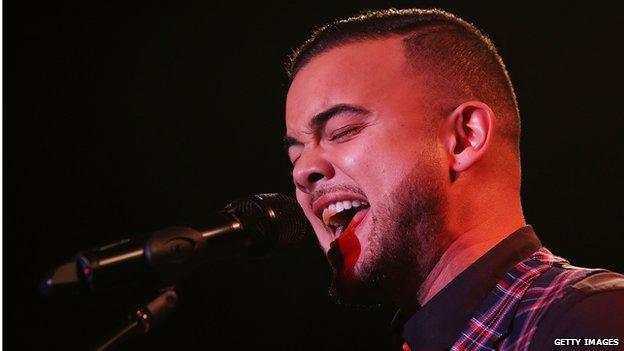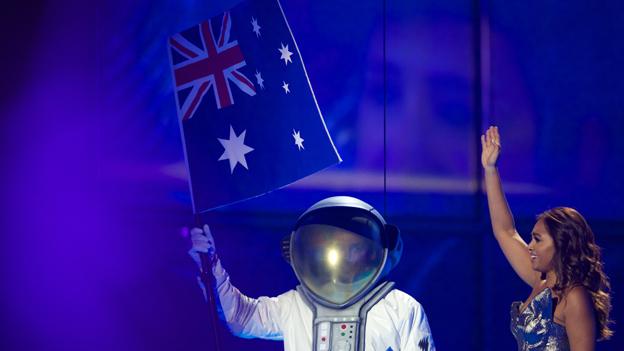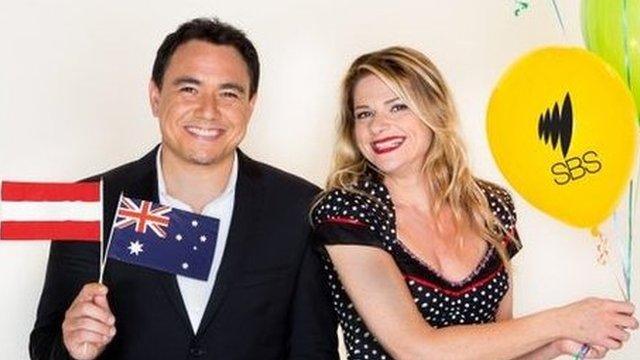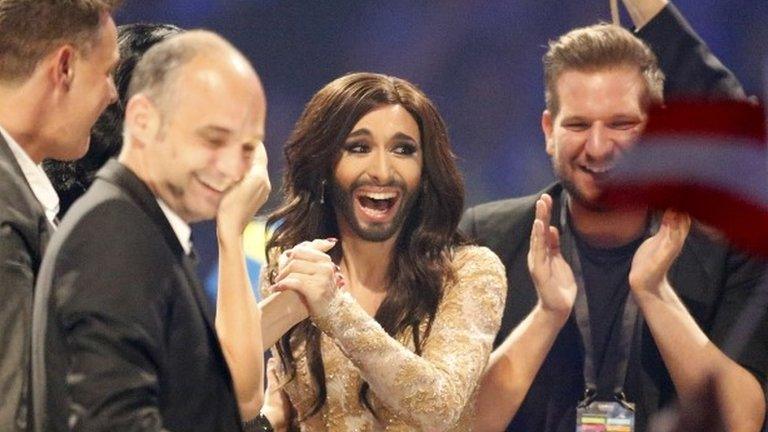Guy Sebastian to represent Australia in debut Eurovision
- Published

Guy Sebastian was the winner of the first Australian Idol competition
Former Australian Idol winner Guy Sebastian has been chosen to represent Australia at its debut Eurovision Song Contest in May.
The announcement was made in a ceremony at the Sydney Opera House on Thursday morning.
Australia was given a wildcard entry to the 60th edition of the competition, to be held in Vienna, Austria.
The country has been fast-tracked to the final and so will not have to compete in the earlier rounds.
Sebastian won the first ever Australian Idol competition in 2003 and has since had eight top ten albums and two number one singles.
He was a judge on Australia's version of The X Factor between 2010 and 2012.
The singer said he was "pumped" to be performing at the competition.
"It's Eurovision, it's huge and keeps growing here in Australia which is nice," he told ABC news, external.

Bernard Zuel, senior critic and music writer for Fairfax Media
Guy Sebastian, a graduate of the first season of Australian Idol who became a rare career success, would seem the perfect choice as Australia's Eurovision entrant. Having moved from Christian pop and soft R&B through soul revival and slightly grittier R&B to EDM-pop, he could be called versatile or opportunistic.
His background in TV talent shows saw him, like others who emerged from Idol and later Australia's Got Talent and The Voice, sell consistently but excluded from the major, peer-voted music awards for a decade until attitudes softened.
What is interesting now is that having established himself as a genuine pop star within the industry as well as with the public he would return to a populist competition and risk potential ridicule.
Choosing to perform a song from his current album, as seems to be the plan, suggests he believes this could be a launching pad to European success rather than any sense of "representing" Australia or enjoying Eurovision for its more outre possibilities.
It is a calculated if maybe overly optimistic plan for a mid-career artist. Then again it may just work. Stranger things have happened at Eurovision.

He has yet to choose a song to perform.
"That is still being worked out," Sebastian said. "I know that I can't sing something that has been released prior to September, so it doesn't leave me with a lot.
"Luckily enough I released my album in November... which narrows it down a little bit or I could write something in the next few days.
"I want it to represent us as a nation well but also just be fun or be emotional. Either super fun or like a big ballad or something that showcases my voice.
Eurovision history
The annual song contest is hugely popular in Australia - three million watched the competition in 2014.
The European Broadcasting Union said the country had been given a pass to the final "to not reduce the chances" of the semi-final participants.
Australia will be allowed to vote in both semi-finals, as well as the grand final.
The possibility of allowing the public to have a 50% stake in the Australian vote through televoting is also being explored.
Australians have participated in the competition before, representing other countries. Olivia Newton John sang for the UK in 1974 - coming fourth - as did Gina G in 1996. Jane Comerford represented Germany in 2006.
- Published12 February 2015

- Published11 February 2015

- Published11 May 2014
